Our world is at a crossroads. Multiple crises—from the global pandemic to climate emergencies—are profoundly impacting mental health, especially that of young people. At the same time, there is much that science and contemplative wisdom can teach us about how to navigate today’s challenges and be a force for good.
On December 8 (Indian Standard Time), His Holiness the Dalai Lama engaged in conversation with stress scientist Elissa Epel and emotions researcher Michelle Shiota on how to embrace the current moment with compassion, courage, and purpose. Watch the recording above (subtitles can be turned on or off with the CC button) or read the event synopsis on the Dalai Lama’s website. You can read the six lessons we learned from the event on our blog.
Mind & Life president Susan Bauer-Wu hosted the discussion with moderation by Buddhist scholar John Dunne, and translation provided by Thupten Jinpa. Crises often illuminate the need for radical change. What is the role of activating hope in pursuing a positive vision of the future? Can action come with a heavy heart, and before we have a clear vision of the radical changes needed? How can we cultivate joy amidst adversity?
Watch the recording for an exploration of how we can—together—transform this moment into one that unifies us in a common purpose.
To apply the wisdom from the event in your own life, Elissa invited viewers to join the BIG JOY challenge—the largest-ever citizen science project on cultivating personal joy through micro-actions.
Participants
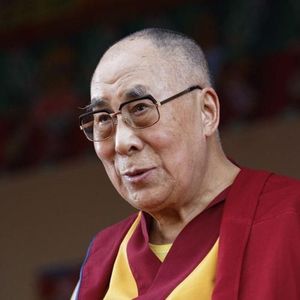
His Holiness the 14th Dalai Lama
Born on 6 July 1935 to a farming family in a small hamlet of Tibet. His Holiness is now the spiritual leader of Tibet, yet describes himself as a simple Buddhist monk. He is the first Nobel Laureate to be recognized for his concern for global environmental problems. He has travelled to more than 67 countries spanning six continents. He has received over 150 awards and honorary doctorates in recognition of his message of peace, non-violence, inter-religious understanding, universal responsibility and compassion.
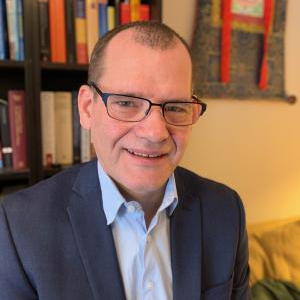
Discussant:
John Dunne, PhD
University of Wisconsin-Madison, Distinguished Professor of Contemplative Humanities
John D. Dunne holds the Distinguished Chair in Contemplative Humanities at the Center for Healthy Minds of the University of Wisconsin–Madison, where he is also departmental chair of Asian Languages & Cultures. His work, which focuses on Buddhist philosophy and contemplative practice in dialogue with Cognitive Science, includes publications ranging across the Humanities and the Sciences. He is a Fellow of the Mind & Life Institute, where he previously served on the Board of Directors.
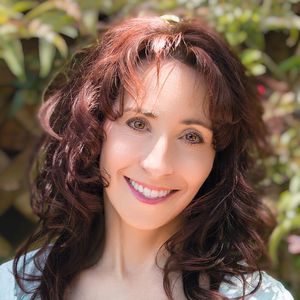
Discussant:
Elissa Epel, PhD
University of California, San Francisco
Elissa is the Professor and Vice Chair in the Department of Psychiatry at University of California San Francisco. She studies how stress resilience and mindfulness interventions can protect health and promote thriving. She also studies transforming climate distress into climate action. She is a member of the National Academy of Medicine, President of the Academy of Behavioral Medicine Research, and Co-Chair of the Mind & Life Institute Steering Council.
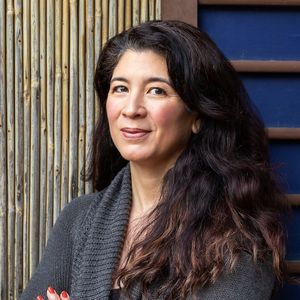
Discussant:
Michelle Shiota, PhD
Arizona State University
Michelle (“Lani”) is an Associate Professor of Psychology and Director of the Substance Use and Addiction Translational Research Network (SATRN) at Arizona State University. Her research investigates positive emotions, emotion regulation, emotional processes in close relationships, and emotion-related mechanisms of behavior change. She is an editor of the Handbook of Positive Emotions (Guilford) and author of the textbook Emotion (Oxford University Press).
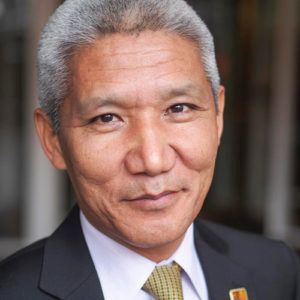
Translator:
Thupten Jinpa, PhD
Compassion Institute and the Mind & Life Institute
Thupten Jinpa has been the principal English translator to H.H. the Dalai Lama since 1985. He is the founder and president of the Institute of Tibetan Classics as well as the Compassion Institute. Jinpa was trained as a monk at the Shartse College of Ganden Monastic University, and also holds a B.A. in philosophy and a Ph.D. in religious studies from Cambridge University. He is the board chair of the Mind & Life Institute.
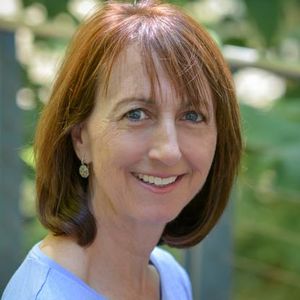
Host:
Susan Bauer-Wu, PhD
Mind & Life Institute
Susan is the President of the Mind & Life Institute. She has held leadership, academic, and clinical roles that have largely focused on fostering resilience through studying and teaching contemplative practices in health care and higher education.

